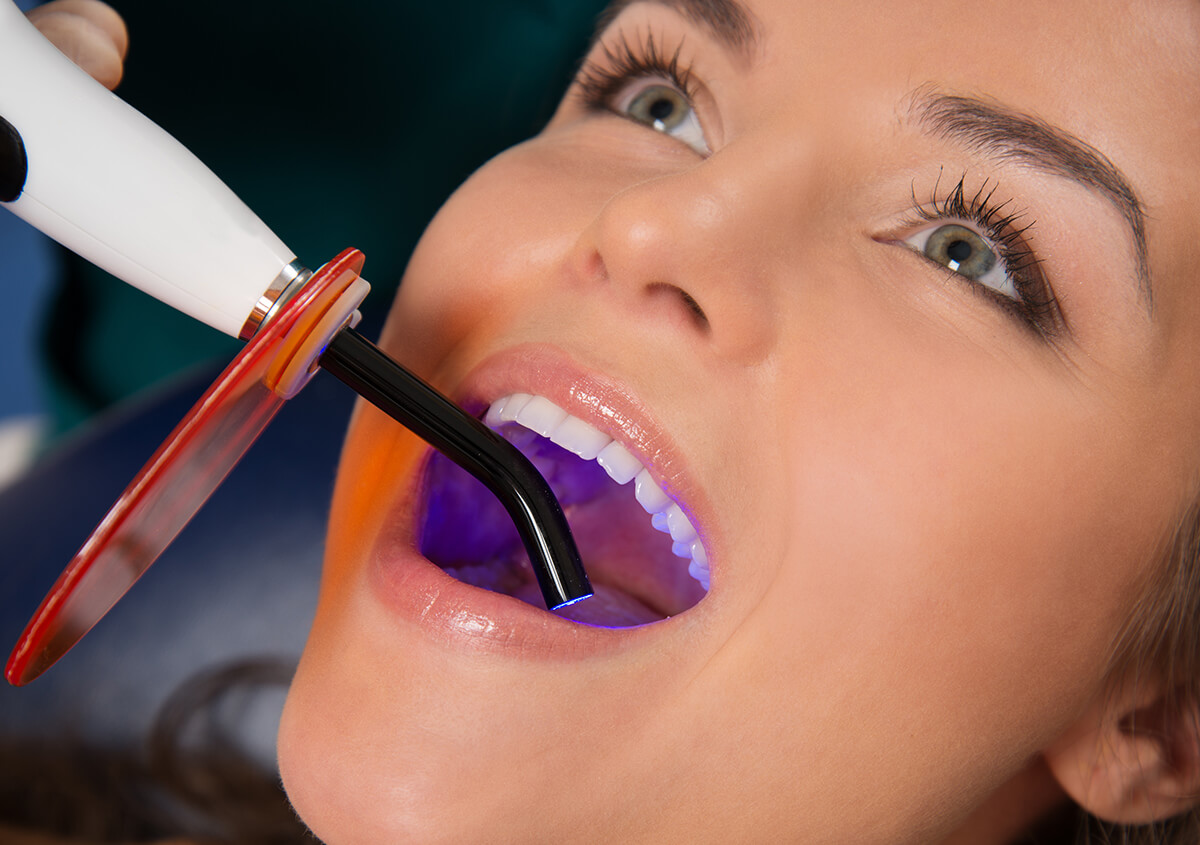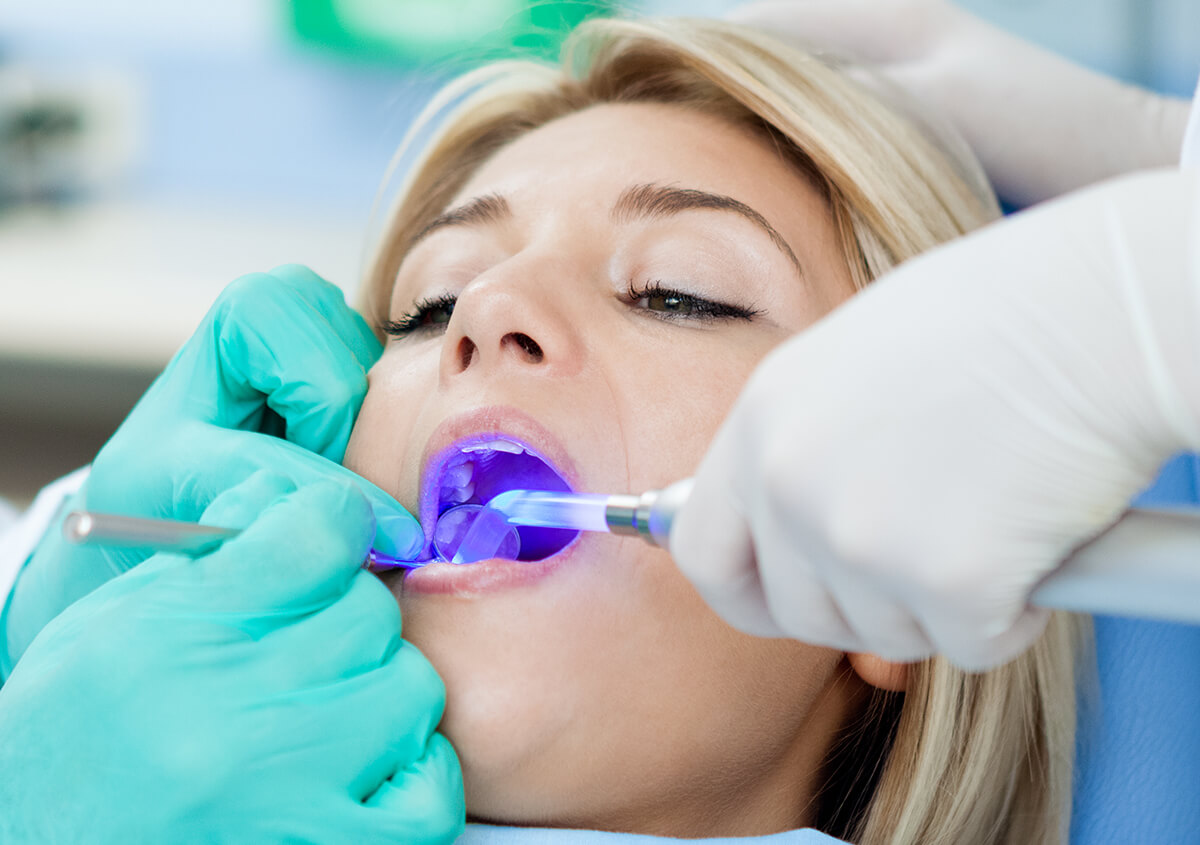Laser dentistry is one of the most advanced areas of dentistry today. With laser dentistry, we can treat a wide variety of conditions in new or improved ways that reduce pain, vibration, noise, and post-operative problems. Laser treatment increases the bond between tooth and filling material for longer-lasting restorations. Lasers also stimulate healing in wounds and other soft tissues and can encourage gum reattachment during periodontal therapy. Dr. Brady and the team at Dental Health and Wellness in Colorado Springs, CO, rely on laser dentistry as a safe alternative to dental drills, harsh chemicals, and bleaching agents to craft beautiful smiles.
Dental laser treatment provides versatile benefits
Dr. Brady uses dental lasers in a variety of cosmetic and restorative procedures. This tool can be used for:
- Teeth whitening – molecules from coffee, wine, tea, and tobacco can become trapped in your tooth enamel, but laser therapy can make short work of them.
- Periodontal therapy – dental lasers can kill pathogenic bacteria on contact, remove damaged tissue, and stimulate healing and gum reattachment.
- For cavities – laser therapy is a safe, gentle way to remove deep tooth decay in cavities.
- Light curing of fillings, dental cement and other products – dental lasers can harden dental bonding and cement for a stronger, faster attachment.
Laser dentistry benefits include:
- Preserves healthy tooth structure
- Reduces leakage of fillings
- Eliminates the fracturing of teeth
- Reduces post-operative sensitivity
- Stimulates the body to heal itself.
- Increases bond strength of filling material
Bottom line
Laser dentistry is just one part of the advanced, holistic care we offer. Dental Health and Wellness focuses on gentle treatments that preserve as much of your natural tooth structure as possible and minimize the need for invasive procedures. While dental lasers cannot replace drills, they are always an excellent choice in specific situations. With routine hygiene appointments, proper nutrition, and home hygiene, Dr. Brady can help you in your efforts to preserve your smile for years to come. Contact our office in Colorado Springs, CO, today at (719) 215-9292 to start your path towards healthier teeth.




